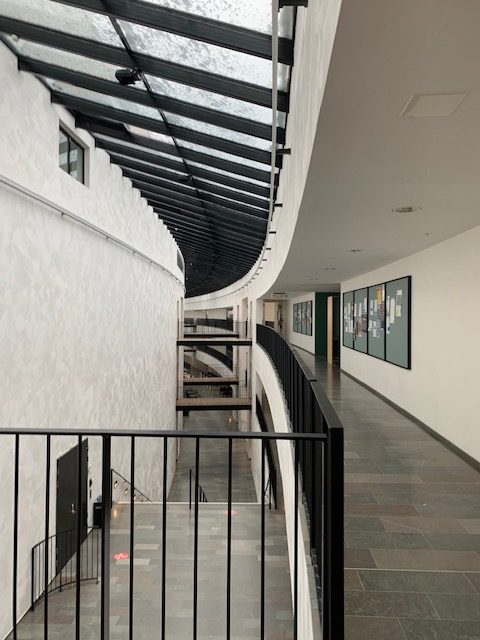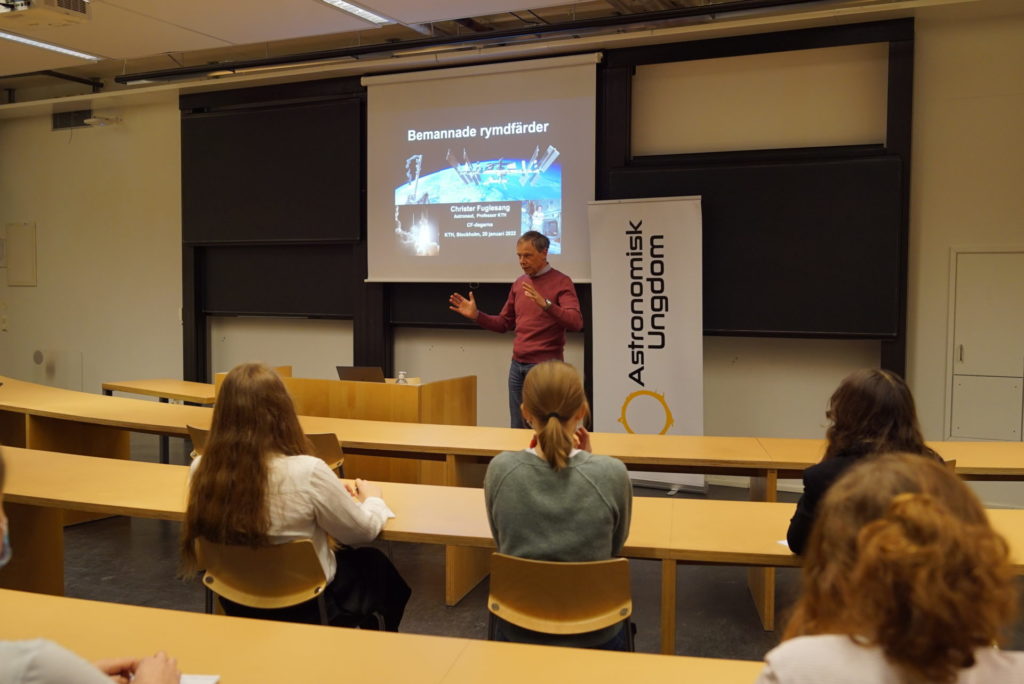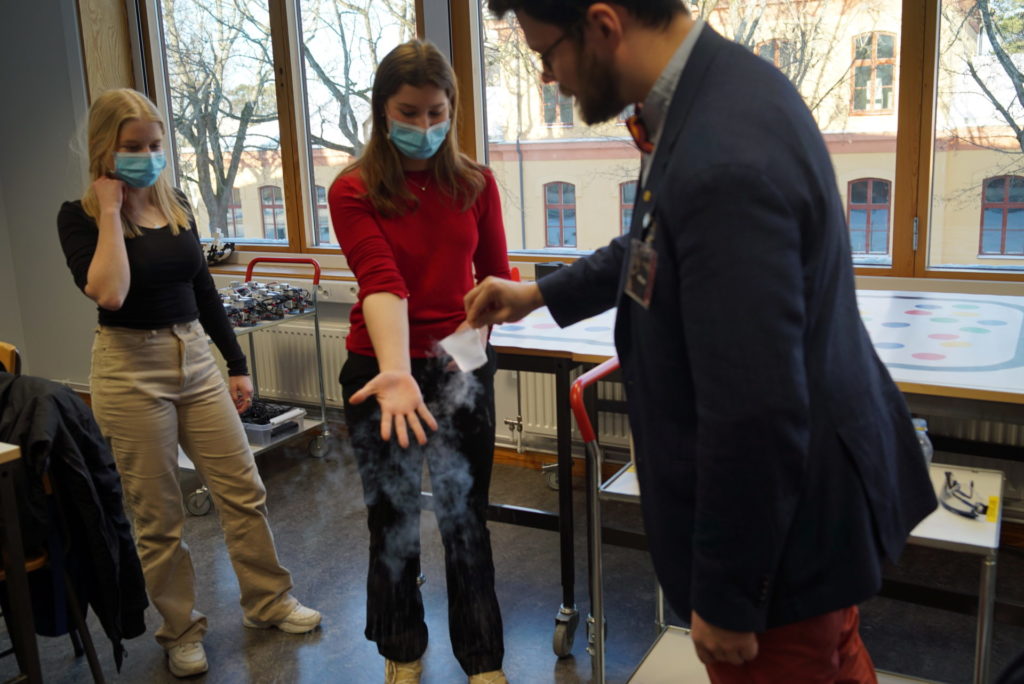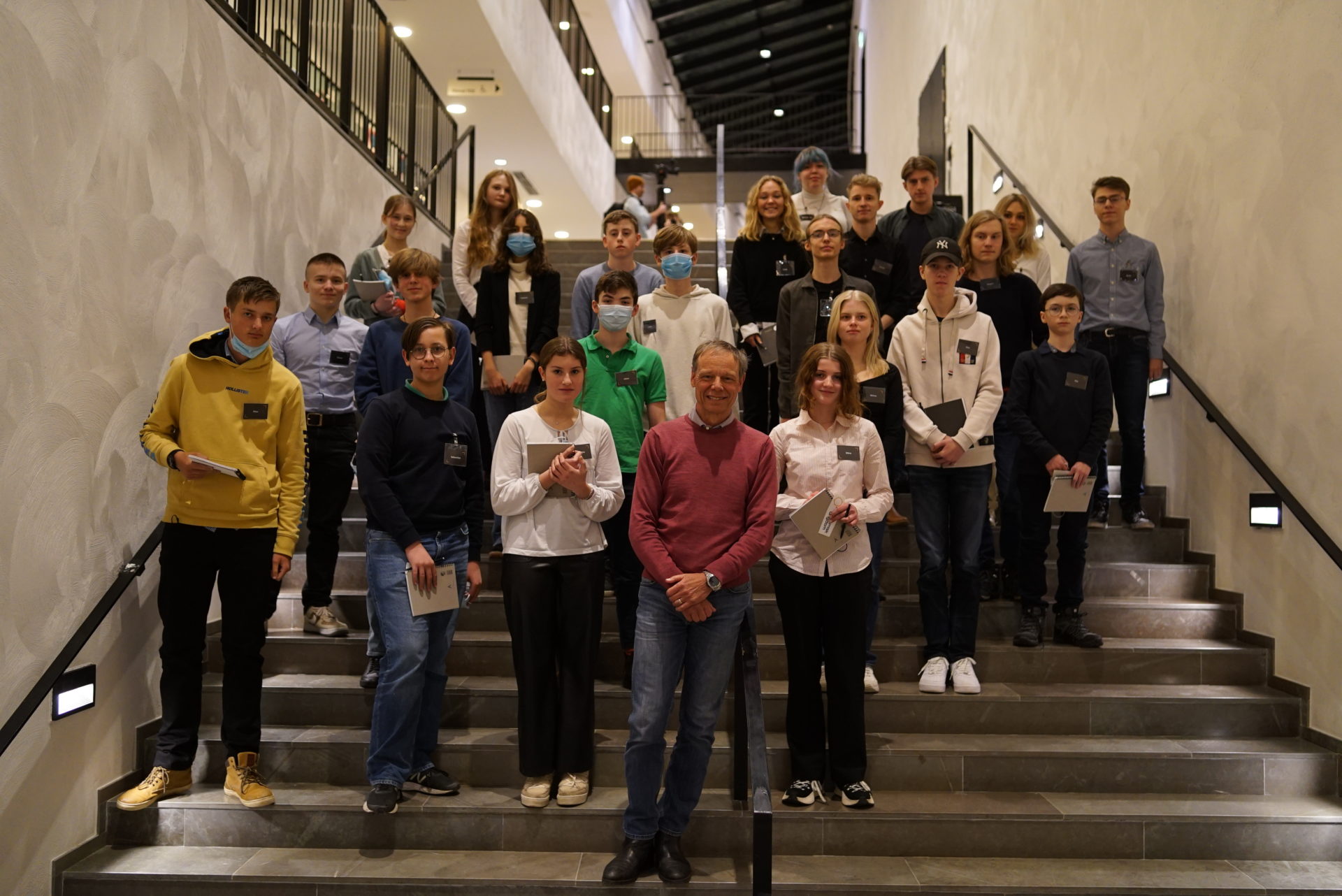Published 21 February 2022
SSHL students participated at Christer Fuglesang days
Four of our students from year 9 and MYP4 were happy to receive scholarships to participate at the Christer Fugelsang Days in Stockholm, 20-22 Januari 2022. One of the four students share her experiences in this article:
“My name is Charlotte Ellefors and I am a student in MYP4. In January I got the chance to spend a weekend in Stockholm and learn more about astronomy. The event was called ‘Christer-Fuglesang dagarna‘ and was held by the Swedish organisation Astronomisk ungdom.
Most of the time was spent in airy and sophisticated looking classrooms in Albanova; a physics, astronomy and biotechnology centre run by the Royal Institute of Technology and Stockholm University. The aim of this wonderful event was to make ninth graders more interested in the Science Programmes offered in the Swedish gymnasium.
It started off on a Thursday. We were all greeted in capacious Albanova by welcoming staff and sent down to a classroom where we started with getting to know each other. The centre was built in an oval shape with a very high roof and huge windows in the middle. Everything was very new and thrilling. We were given our supervisor and our supervisor groups.

The entrance in Albanova.
Later on when everyone had arrived, we received a piece of paper with a “space word” written on it. We were all supposed to sort out the size of these words from smallest to largest. I received the word Ceres. You might not have any idea on what this word means, but don’t worry, I didn’t know it either. Ceres is a dwarf planet in the asteroid belt between the orbits of Mars and Jupiter. I thought it was a star. Anyways, this activity just shows how easy it is to learn anything by making it more fun.
Having said that, the day went on. We had a very educational and inspiring lecture with Sweden’s only astronaut Christer Fuglesang. The lecture with Fuglesang was very absorbing and fascinating. He talked about his space missions, how he became an astronaut and life in space. I was surprised at how long it took for him to go on his first mission, and the insane equipment they trained with. I have no doubt that everyone in the room was amazed and inspired after his presentation.

Christer Fuglesang in one of the lectures with the students.
Later on we ate dinner and headed to the hostel in Zinkensdamm where we spent the nights. The schedule was packed with activities and lessons, and there was always something going on. On Friday I learnt about space science fiction, dosimetry, cosmology, the formation of galaxies, research about the sun, and we also had a laboration where we programmed robots in a computer program.
We all touched liquid hydrogen and Andreas in the picture poured it on our hands too. It was quite a weird feeling but an awesome experience.

The students experiencing touching liquid hydrogen.
In between we had social activities, breaks and fika pauses, as well as lunch in the relaxing restaurant on the bottom floor in Albanova. When we had finished all of our lectures, taken notes and changed into dresses and suits, it was time for dinner. Astronomisk ungdom had prepared a three course dinner in the restaurant in Albanova. The food was delicious and we all had a really good time talking to each other.
Saturday was the last day. We were all very cheerless as this would be the last time seeing each other and having lectures like these. We learnt about cosmic radiation and did an experiment with myons. The experiment was extremely hard and only one of our staff members could solve it.
Finally, I would like to say how much this experience has piqued my curiosity in astronomy, mathematics, and physics. Every day, I hear students complaining about how difficult these subjects are and how they have given up on them. By shifting their mindset, anyone may comprehend it. I have had negative mindsets and thought that I could never be smart enough to understand mathematics or even the most basic laws of physics. However, in recent years I have changed my mindset and nowadays I look forward to a maths lesson.
I know that these subjects are very academic and difficult in some ways, but I just want students to believe in themselves. The organisation astronomisk ungdom also has summer schools (Sommarforskarskolan), and I would sincerely encourage you to look it up. After these two packed days in January, I’m thinking about studying physics in gymnasium, DP, or perhaps university.”
Written by: Charlotte Ellefors, class MYP4

